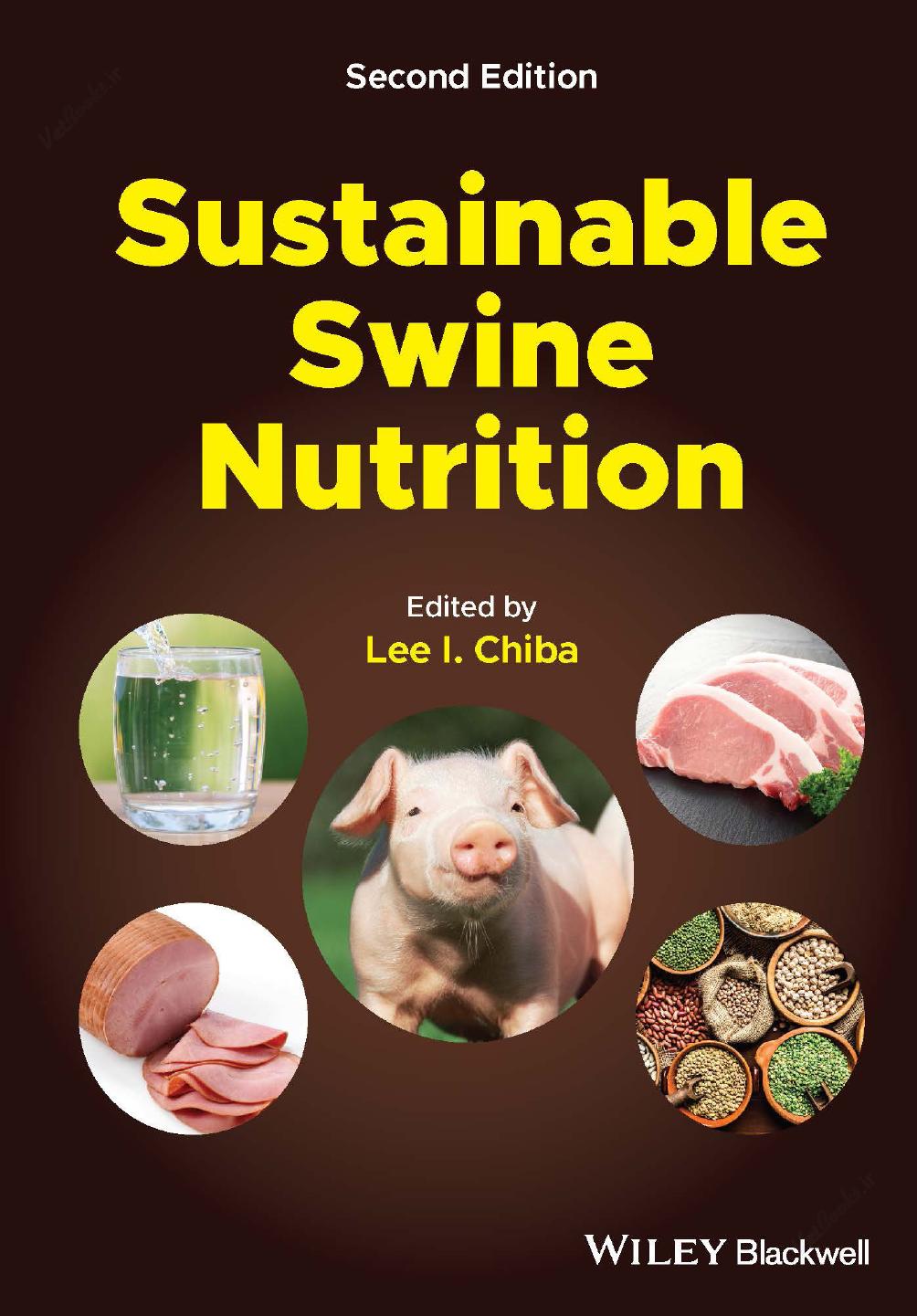

Most ebook files are in PDF format, so you can easily read them using various software such as Foxit Reader or directly on the Google Chrome browser.
Some ebook files are released by publishers in other formats such as .awz, .mobi, .epub, .fb2, etc. You may need to install specific software to read these formats on mobile/PC, such as Calibre.
Please read the tutorial at this link. https://ebooknice.com/page/post?id=faq
We offer FREE conversion to the popular formats you request; however, this may take some time. Therefore, right after payment, please email us, and we will try to provide the service as quickly as possible.
For some exceptional file formats or broken links (if any), please refrain from opening any disputes. Instead, email us first, and we will try to assist within a maximum of 6 hours.
EbookNice Team

Status:
Available4.7
26 reviews
ISBN 10: 1119583896
ISBN 13: 978-1119583899
Author: Lee I. Chiba
Sustainable Swine Nutrition
As climate change continues to have a significant impact on the modern world, it is crucial to find alternative sources of energy and nutrients for swine production. The development of optimal feeding revolves around a multitude of considerations―genetic variations in the pig, variability, availability, and stability of nutrients in feed ingredients, interactions among nutrients and non-nutritive factors, voluntary feed intake, physical (& social) environment of pigs, and more. Establishing the ideal network of factors will only grow in importance as humans assess the methods for our own food networks.
Sustainable Swine Nutrition is a comprehensive book on swine nutrition, covering some fundamental aspects of nutrition―namely digestive physiology, water, protein or amino acids, lipids, carbohydrates, energy metabolism, vitamins, minerals, and nutrition and immunology. Providing the most up-to-date information on each of these areas, a major emphasis of this second edition is on recent developments and current advances in the field, with a focus on pertinent issues linked with energy and nutrients. In doing so, the book highlights topics and issues that can contribute to the ultimate goal of successful and sustainable swine production.
Sustainable Swine Nutrition readers will also find:
Environmentally friendly, optimal feeding strategies for successful and sustainable swine production
Recent developments, such as alternative feedstuffs, feed additives, and bioavailability
Expanded treatment and new chapters on swine physiology, energy and protein, technology, and more
Sustainable Swine Nutrition, Second Edition, is an ideal resource for livestock scientists and industry professionals involved in all aspects of pork production.
Water in Swine Nutrition
Energy and Energy Metabolism in Swine
Lipids and Lipid Utilization in Swine
Amino Acids and Amino Acid Utilization in Swine
Carbohydrates and Carbohydrate Utilization in Swine
Vitamins and Vitamin Utilization in Pigs
Minerals and Mineral Utilization in Swine
Nutrition and Immunology in Swine
Feed Processing Technology and Quality of Feed
Enzymes and Enzyme Supplementation of Swine Diets
Feed Additives in Swine Diets
Digestibility and Availability of Nutrients in Feed Ingredients
Swine Nutrition and Environment
Swine Housing Systems, Behavior and Welfare
Feeding Reproducing Swine and Neonatal Pigs
Feeding Weanling, Grower and Finisher Swine
Nutrition for Successful and Sustainable Swine Production
Major Protein Supplements in Swine Diets
Pulse Grains and Their Coproducts in Swine Diets
Fiber in Swine Nutrition
Antinutritional Factors in Feedstuffs
Organic Swine Production and Nutrition
Swine Nutrition and Pork Quality
is pork sustainable
how sustainable is meat
is swine poultry
what is sustainable nutrition
which protein is especially important in swine diets
Tags: Lee Chiba, Sustainable Swine Nutrition